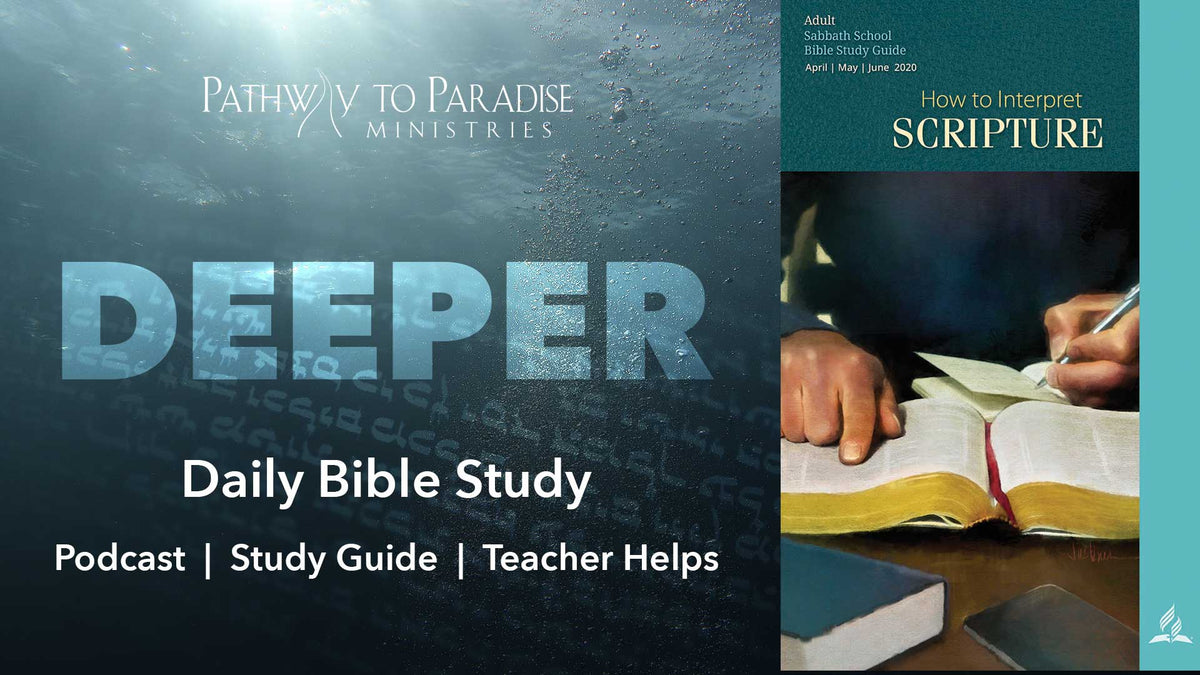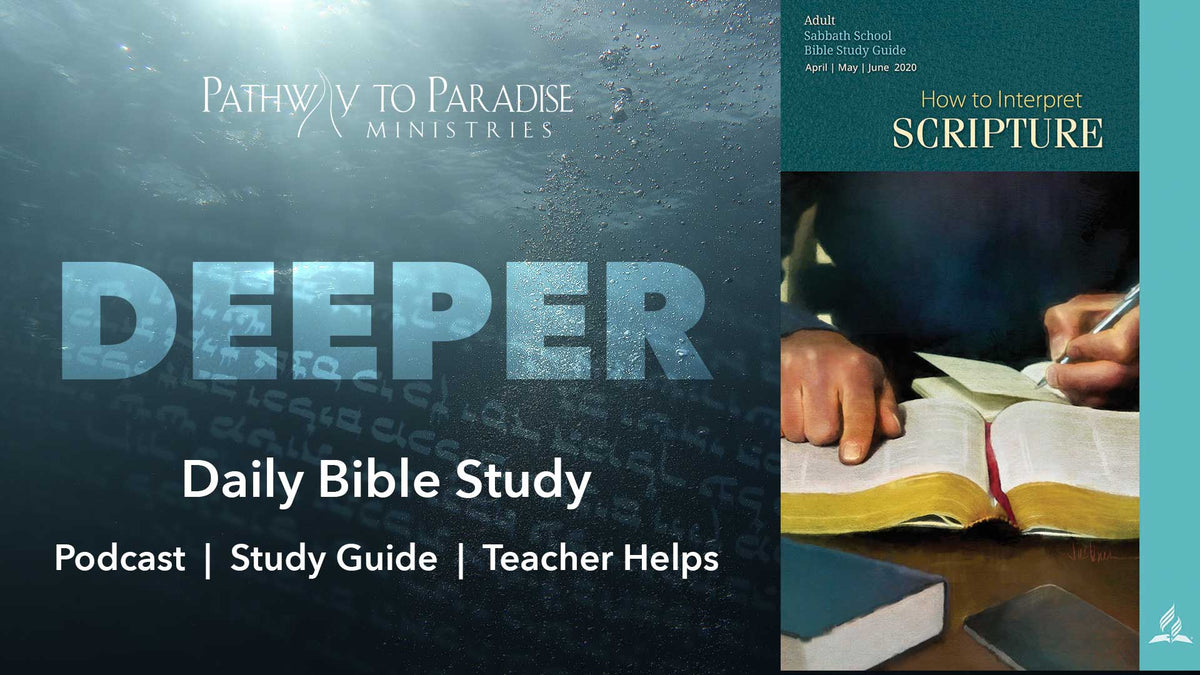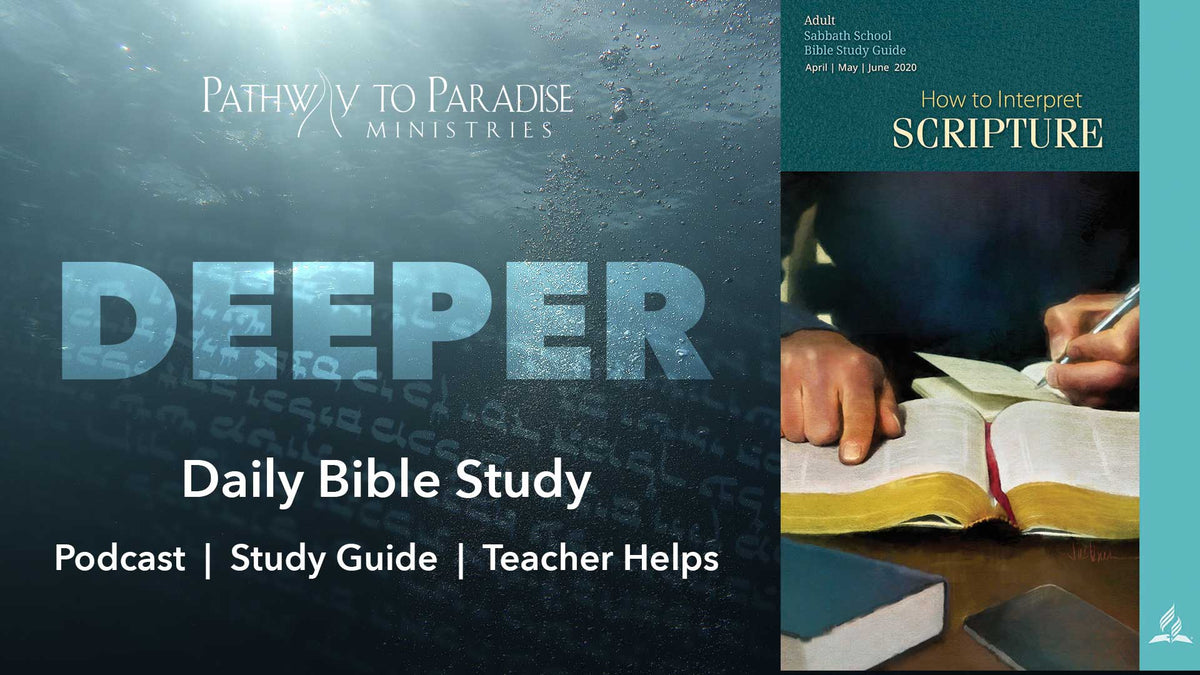Living the Advent Hope (2019, Quarter 3, Lesson 11)

Sabbath (September 7): Living the Advent Hope
This week’s lesson brings to our attention a wonderful invitation not only to have hope in the soon advent of Jesus, and the establishment of His kingdom, but to live now in such hope. As the lesson points out, “we live in the present as we expect to in the future, and we begin working to make a difference now in ways that fit with how we expect the world will one day be.” Today we’ll look at the instructions of Jesus about how to start living the advent hope.
Discussion Questions:
-
Read Matthew 10:5. What is “the way” of the Gentiles mentioned here? (The way of the Gentiles is where their heart is, where they gather, where they assemble, where they enjoy their life, their practices, their customs, their entertainment and even their education.) Why did Jesus command them not to enter into any Samaritan cities? (Although the Samaritans believed in God and professed to have the truth, they had not accepted the clear word of God and had mixed their religion with paganism, and were corrupt in their doctrine. Before the disciples could go to Samaria, they first had to start their labor among their own. The gospel first had to bring revival and reformation to the elect people of God in order for them to be effective to the world.)
-
Read Matthew 10:6. Who are the lost sheep mentioned here -- a specific people within Israel or the people as a whole? What was Jesus’ reason for pressing so urgently the need to go to the “lost sheep” of Israel first? (The Lord loves His people and would first do a work of revival and reformation among them, thus presenting a living testimony to the world of what true religion does in the life and experience of people.)
-
Read Matthew 10:7. What does “the kingdom of Heaven” mean? Why was it important for the Israelites to know this and to realize the kingdom was at hand? (This is living the advent hope. Christ, then and today, wants his people to understand that His kingdom is always within reach and we don’t have to be in heaven to experience the attributes of its existence. It is possible to live today in the experience of joy, peace and happiness by partaking of His divine nature.)
-
Read Matthew 10:8. What does this verse say about how evangelism should be done? What is our responsibility now in regard to healing physical infirmities? What is it that the disciples had freely received that they were to give? How might we be able to give of that which we have received? (This is living the advent hope. The attributes of heaven are available to bring healing, care, joy, and peace to the least of these.)
-
Read John 18:36. What did those who tried to protect Jesus assume about His human/divine nature? (They assumed He was not God and thus could not defend Himself.) Since Jesus’ kingdom is not of this world (and therefore His servants shouldn’t fight against the earthly powers to “save” Him), is it possible that we are to fight against some unearthly power (i.e. the powers of darkness)? (Answers will vary.)
Sunday (September 8): “How Long, O Lord?”
As the lesson points out, God’s people have cried out to Him for justice and redemption since sin entered this world. In today’s study we will focus on what God counsels His people to do while they are waiting for their salvation to be fully realized.
Discussion Questions:
-
Read Revelation 6:9. If we are being oppressed and afflicted, what should be the reason for our mistreatment? (If oppression comes our way, we should pray that it is because we have kept the word of God and have shared our testimony with others about what God has done in our lives.)
-
Read Revelation 6:10. In this context, is judgment a good thing? (Yes! We should eagerly anticipate the judgment because it is through judgment that God will redeem and save His people [see also Isaiah 1:27 and Daniel 7:23-26].)
-
Read Revelation 6:11. What does the white robe represent, especially for God’s people who are being persecuted and oppressed?
-
Isaiah 1:16-18. The white robe represents forgiveness of sins, including our forgiveness toward those who are mistreating us.
-
Isaiah 61:10. The white robe represents the righteousness of Christ at work in our lives.
-
Revelation 14:12 and Galatians 5:22,23. The white robe also represents patience and continued faith in God even when persecution continues.
-
-
Read Matthew 24:43-46. What additional aspects of faithful living while waiting for Christ’s return are found in this passage? (Answers will vary. Remaining watchful and giving others “meat in due season.” This “meat” refers to meeting physical needs of others as well as providing the “meat” of Bible truth [see Hebrews 5:11-6:2].)
Monday (September 9): A Certain Kind of Hope
Throughout the warnings about calamities, destruction and deceptions that will be faced by God’s people just prior to the second advent of Christ, the Lord always gave hope and assurance that would aid His people to remain faithful. The message of Christ has many promises to help us hold on to the blessed hope, a hope that becomes a real and present experience until the very end. Today we’ll look at some of these promises found in Jesus’ sermon in Matthew 24.
Discussion Questions:
-
Read Matthew 24:12-14. Why will people’s hearts grow cold? (Pride and love of the world bring coldness to the heart.) What does “endure until the end” mean? (Only those with a humble heart and who love not the world can make it to the end.) How is the gospel to be preached in all the world? (The experience [testimony] of the believer should be known to the world, not a mere saying.) How does this connect with Matthew 10:8? (Answers will vary.)
-
Read Matthew 24:20-22. Why does Jesus tell us to pray that our flight not be in the winter or on the Sabbath? Given that our world is a mess and has already been incredibly evil (think of the flood), how could it possibly get any worse (see verse 21)? Why? What is our part to play during that time? (Christ shows that humble prayer is the element of communication to heaven. No matter how evil the world turns, by prayer the power of the Almighty can be given to His people, and that due to the prayers of the saints, the liberation will be swifter and their lives will be spared).
-
Read Matthew 24:29-31. What is the sign of the “Son of man”? (A little cloud will be seen in the sky [as in Elijah’s answer at Mount Carmel], which will be the sign that Jesus is coming.) Why will all the tribes of the earth mourn? (To realize that they are eternally lost.) Why is He sending His angels to gather the elect? (They are scattered all over the earth, so the angels are picking them up and bringing them to Christ in the air).
-
Read Matthew 24:32-35. Why is it important that we know when Jesus’ coming is near? (His words show us that we are living in the very last days, that all prophecies are being fulfilled, and we must believe His coming is even at the doors. This is why the promise that Christ makes to His people who live today is that we are to believe in His word completely, no matter what we see around us).
Tuesday (September 10): Resurrection Hope
Throughout its history, the hope of Christ’s second coming and the resurrection of the righteous dead has been the “blessed hope” (Titus 2:13) of God’s people. Today’s lesson explores the power that this hope can give to each of us in our lives.
Discussion Questions
-
Read 1 Corinthians 15:17. On what does the Christian faith depend? (Christ’s resurrection from the dead.)
-
Read 1 Corinthians 15:18. Why is Christ’s resurrection so important to our faith? (If Christ wasn’t raised, then neither can any of us be raised.)
-
Read 1 Corinthians 15:19. What do you think Paul means here? Wouldn’t there be some blessing in simply living a good moral life, even if there is no resurrection from the dead? (Paul seems to be saying that surrendering and committing one’s life to a false understanding of reality is most pitiful.) What does that suggest for those who don’t believe in God or in the hope of a resurrection? (They should be pitied above all people.)
-
Read Hebrews 11:17-19. When God called Abraham to sacrifice his son Isaac, what did he believe God could do for his son? (Raise him from the dead.) Why is Abraham’s faith here so remarkable? (At this point in history, no person had ever risen from the dead. In other words, Abraham believed that God could do the “impossible.”) What seems impossible in your life right now that you need to trust God with? (Answers will vary.)
Wednesday (September 11): Judgment Hope
One of the recurring themes in the Bible is judgment, and yet modern “love-preaching” Christians tend to make the issue of judgment a minor one or even discredit it completely. However, time and time again the Bible speaks of judgment. But, as we’ll see today, the judgment is an experience of hope, one that every believer in the advent will embrace as it seals the loving plan of redemption with the blessed experience of true freedom from sin.
Discussion Questions:
-
Read Ecclesiastes 8:14. Why is it that the the wicked seemingly get away with their evil works and yet the just man gets the consequences? Isn’t that unfair? (This world is polluted with sin, and there are many times when we see no justice.) If God realizes this, why doesn’t He do something about it? (He does, and this is why His judgment, which is happening now, is a living hope for the righteous.)
-
Read Ecclesiastes 12:13. Does this imply we should be afraid of God? Since fearing God and keeping His commandments is the whole duty of man, are our actions the only thing that matters? (Man cannot be found with any excuse for living a life of sin, and our actions of willful sinning reveal our hearts as being separated from God).
-
Read Ecclesiastes 12:14. Why does God need to judge each person if He already knows everything? Wouldn’t that take forever? Couldn’t He just give the final verdict right away? (The judgment is a process that verifies each individual as justified or not. Grace is available through the judgment, and anyone who accepts Christ has the opportunity to be granted full and complete pardon. God, being the perfect Judge, is also subject to judgment.)
-
Will God judge us for things we’ve already asked forgiveness for? (Unless we keep unconfessed sins and are finally found wanting, all our sins will be removed, so there will be no judgment against us.)
“When the records of heaven shall be opened, the Judge will not in words declare to man his guilt, but will cast one penetrating, convicting glance, and every deed, every transaction of life, will be vividly impressed upon the memory of the wrongdoer... His own lips will confess his shame. The sins hidden from the knowledge of men will then be proclaimed to the whole world.” PP 498
Thursday (September 12): No More Tears or Pain
Perhaps the most thrilling portions of Revelation are found in chapters 21 and 22 as John describes a re-created world without sin, pain, tears, or death. In today’s lesson we will take a closer look at what the Bible reveals about heaven and what life will be like there.
Discussion Questions:
-
Read John 14:2,3. Is heaven a real place? (Definitely! God is preparing real homes for His people in this very real place.)
-
Read Isaiah 65:21,22. What will life be like in heaven? (We will be able to build our own homes and grow our own food.)
-
Read Matthew 8:11. With whom will we converse in heaven? (Abraham, Isaac, and Jacob, to name just a few faithful Bible characters.)
-
Read Philippians 3:21 and 1 Corinthians 15:52,53. What else will we enjoy in heaven? (Immortal bodies!)
-
Read Malachi 4:2. What do you think this verse suggests? (Perhaps that we will continue growing and learning forever throughout eternity.)
Friday (September 13): Reach a Higher Standard
Though we will never be saved by our works or actions, the Lord calls us to a higher level of life, because He has provided us with the means to live differently than those in darkness. Christ gave us a target to aim our eyes toward and He is that target. We’ll see how we can keep our eyes on Jesus and reach a higher standard in our lives.
Discussion Questions:
-
Read Matthew 24:37-39. Is it wrong for Christians to do these things -- eat, drink, get married, etc.? (No, but where is their heart?) Why didn’t they know that the flood was coming? (Intellectual knowledge without faith [active belief] is death.) Didn’t Noah warn them? (Yes, but men loved darkness more than light.) What is the connection with the Second Coming? (Righteous behavior of men will be seen among God’s people and the rest of the world).
-
Read Matthew 24:40-42. Are these verses implying that people will be taken to heaven at random times? (This has nothing to do with being taken to heaven. It refers to the work of the judgment, where two can appear to do or profess the same thing, but only those who have the righteousness of Jesus can remain saved till the end.) Regarding verse 42, is it possible that the Lord might come for each of us at different times? (In a certain way, yes, as our life can end at any moment. If we watch and pray, the coming of Christ will not be a surprise to us, for we have been found justified in His judgment).
-
Read Matthew 24:43-44. What are ways we can watch so that our “house” is not “broken up”? Why is there such an uncertainty of the time when Jesus will return? Didn’t He give the signs of His coming? (Our families are being broken up as well as our churches, because there is no watching and praying. We keep living in sin, and we will keep reaping the effects of the enemy.)
-
Read Matthew 24:45-47. How can we be like this faithful servant? What would be the spiritual equivalent of making the servant ruler over the master’s goods? (Answers will vary.)
-
Read Matthew 24:48-51. What are ways that we might think as the evil servant did in our lives? Why would he smite his fellow servants? Who is weeping here (verse 51)? (Answers will vary.)
Listen to the Daily Podcast!
Go to the DEEPER Webpage or Listen Below
Leave a comment
Comments will be approved before showing up.
Also in DEEPER Bible Study Notes

Living by the Word of God (2020, Quarter 2, Lesson 13)

Dealing With Difficult Passages (2020, Quarter 2, Lesson 12)


admin admin
Author